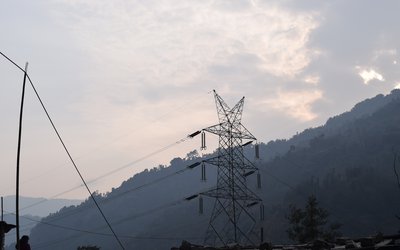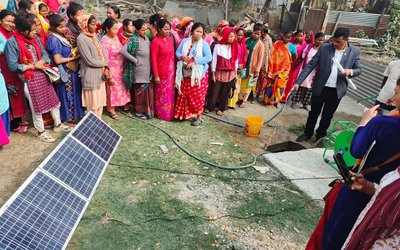For decades the primary focus of gender equality movements have been empowering women and advocating for their rights. However, in the recent years there has been growing recognition of the importance of engaging men in the process. This shift stems from the understanding that gender inequality is not just a woman’s issue but one that affects the entire society. It acknowledges men not just as passive observers but active participants who play a key role in dismantling harmful gender norms leading to the creation of a more equitable and inclusive society.
When only women raise their voice for gender equality it can be perceived as complaining or positioning themselves as victims. This can unintentionally reinforce the idea that gender inequality is a woman’s issue. While framing gender equality in this way we overlook the fact that in the presence of gender inequality women may experience oppression in the form of domestic violence, discrimination and unequal opportunities while men suffer from the pressure to conform to narrow toxic definitions of masculinity. This prevents emotional expression, involvement in caregiving and equitable participation in domestic responsibilities.
The engagement of men in gender equality is not about making them ‘saviors,’ for women but about understanding that gender equality benefits all members of the society. Men can contribute to the achievement of gender equality by using their privileges to challenge discriminatory practices. When we say engagement of men and boys in strengthening gender equality, it does not only mean boardrooms, conferences, policies and international platforms. The conversation on and around gender equality can sometimes be seen as formal, centered on debates, activism and statistics. While these are crucial parts of the bigger picture, the truth is that real change begins at a personal level. It doesn’t always require a title or a position, sometimes it starts with something as simple as listening. Listening to understand, not only to respond. When men and boys take time to listen and internalize the challenges that the person of the opposite gender face, they are better equipped to act meaningfully. This helps avoid tokenistic support. When a person engages without understanding the true essence, the participation can be counterproductive, as their actions might reinforce the same hierarchies that they aim to dismantle. This is where disengaging comes into picture. Disengaging means unlearning entitlement and letting go of the need to dominate conversations where they shift focus from women’s experiences to their own perspectives. Advocacy can be as simple as simple as calling out against a sexist joke among friends, supporting your partner’s goals and ambitions or guiding a younger sibling through their first menstrual experience not with discomfort, but with experience and knowledge.
The inequality we see today is also a product of the generation of boys who were never taught to see women as equals or were never encouraged to express vulnerability. This is why engaging boys is important, if we want men who value equality we must begin planting these seeds early. From living room to legislations, the focus should be on creating a society where gender equality is not and exception but the expectation. For a long time, gender equality has been treated as a favor given to women or a progressive choice, something to be applauded when men ‘allow’ it. That narrative needs to change. When boys grow up in a home where equality is modeled and schools where gender equality is a part of their everyday learning, we create a generation of men, who enter the world expecting women to lead, voice out their opinions, make decisions. They don’t see it as a threat because they understand everyone is equal.
This expectation carries on into different aspects of everyday life from family planning to politics. Take for example family planning: men have an important role in family planning as supportive partners and agents of change. From the use of protection, to being aware about the matters of sexual and reproductive health decisions man play a key role. When men are actively engaged in matters of family planning it reduces the disproportionate burden that often falls on women.
A society that normalizes gender equality at home raises leaders that are not merely ally’s but advocates. They don’t include women just because they’re told to; they do it because it is the right thing to do. The journey towards the achievement of gender equality is not a solitary path where women walk alone. It is a shared responsibility and hence calls for the collective effort that requires conscious participation of men and boys at different levels. If we want to build a future where equality flourishes we need to see men and boys as allies in the journey or outsiders to the movement of gender equality. It is more about building a world where gender equality is not just a campaign or a symbolic quota system that needs to be filled but a lived reality. Let boys grow up believing that empathy is strength and that caregiving is a shared duty and that respect is a non-negotiable. Men should be a part of the solution not out of guilt but out of conviction. When men stand up not to speak over or against women but to stand with and beside them the fight for gender equality transforms from a movement into a revolution.
(Kharel holds a master’s degree in Development Studies from Kathmandu University. She writes on the issues of gender and development.)
- When Skies Turn Gray: Kathmandu’s Struggle for Breathable Air
- Apr 16, 2025
- Nepal's Minister for Foreign Affairs highlights LGBTQIA+ achievements at a global forum
- Jan 06, 2025
- Micro-aggressions in Daily Life: Subliminal Discrimination against LGBTQI++ Communities
- Nov 16, 2024
- Nepal Makes History with First Female Chief Secretary and Shortest Tenure
- Aug 18, 2024
- Navigating the Climate Crisis: Harnessing Indigenous solutions for a sustainable future
- Aug 04, 2024















